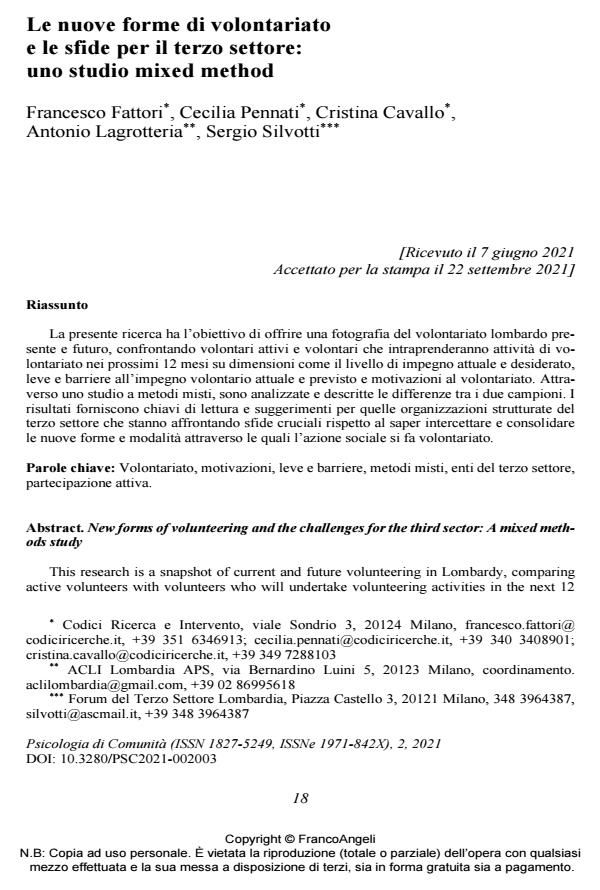New forms of volunteering and the challenges for the third sector: A mixed methods study
Journal title PSICOLOGIA DI COMUNITA’
Author/s Francesco Fattori, Cecilia Pennati, Cristina Cavallo, Antonio Lagrotteria, Sergio Silvotti
Publishing Year 2021 Issue 2021/2
Language Italian Pages 24 P. 18-41 File size 315 KB
DOI 10.3280/PSC2021-002003
DOI is like a bar code for intellectual property: to have more infomation
click here
Below, you can see the article first page
If you want to buy this article in PDF format, you can do it, following the instructions to buy download credits

FrancoAngeli is member of Publishers International Linking Association, Inc (PILA), a not-for-profit association which run the CrossRef service enabling links to and from online scholarly content.
This research is a snapshot of current and future volunteering in Lombardy, comparing ac-tive volunteers with volunteers who will undertake volunteering activities in the next 12 months (defined prospects) on dimensions such as current and desired level of engagement, levers and barriers to current and expected voluntary engagement and motivations to volunteer. Through a mixed-methods study, differences between the two samples are analysed and de-scribed. The results provide understanding and suggestions for those third-sector structured organisations facing crucial challenges in intercepting and incorporating the new forms of volunteering.
Keywords: Volunteering, motivations, levers and barriers, mixed methods, third-sector or-ganisations, active participation.
Francesco Fattori, Cecilia Pennati, Cristina Cavallo, Antonio Lagrotteria, Sergio Silvotti, Le nuove forme di volontariato e le sfide per il terzo settore: uno studio mixed method in "PSICOLOGIA DI COMUNITA’" 2/2021, pp 18-41, DOI: 10.3280/PSC2021-002003